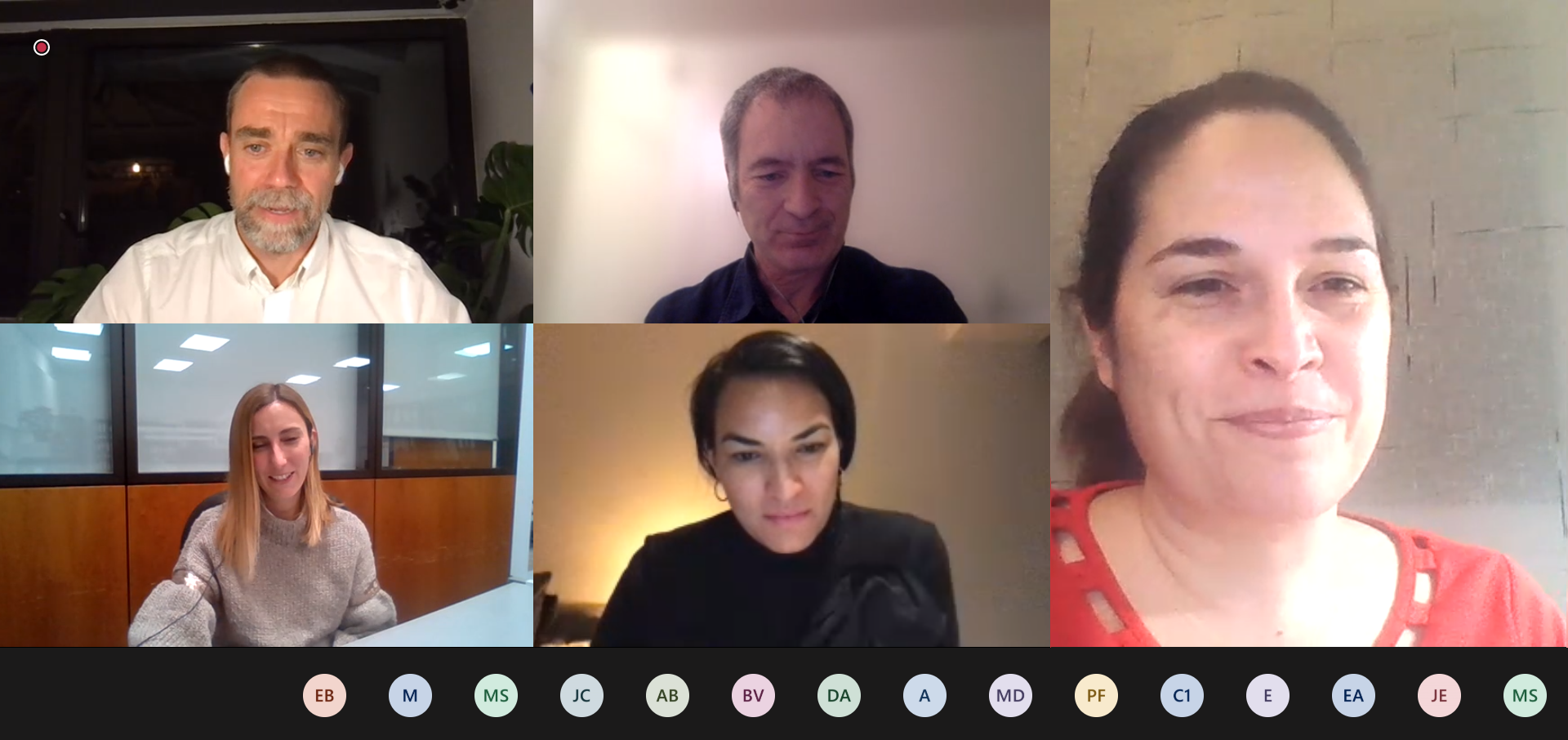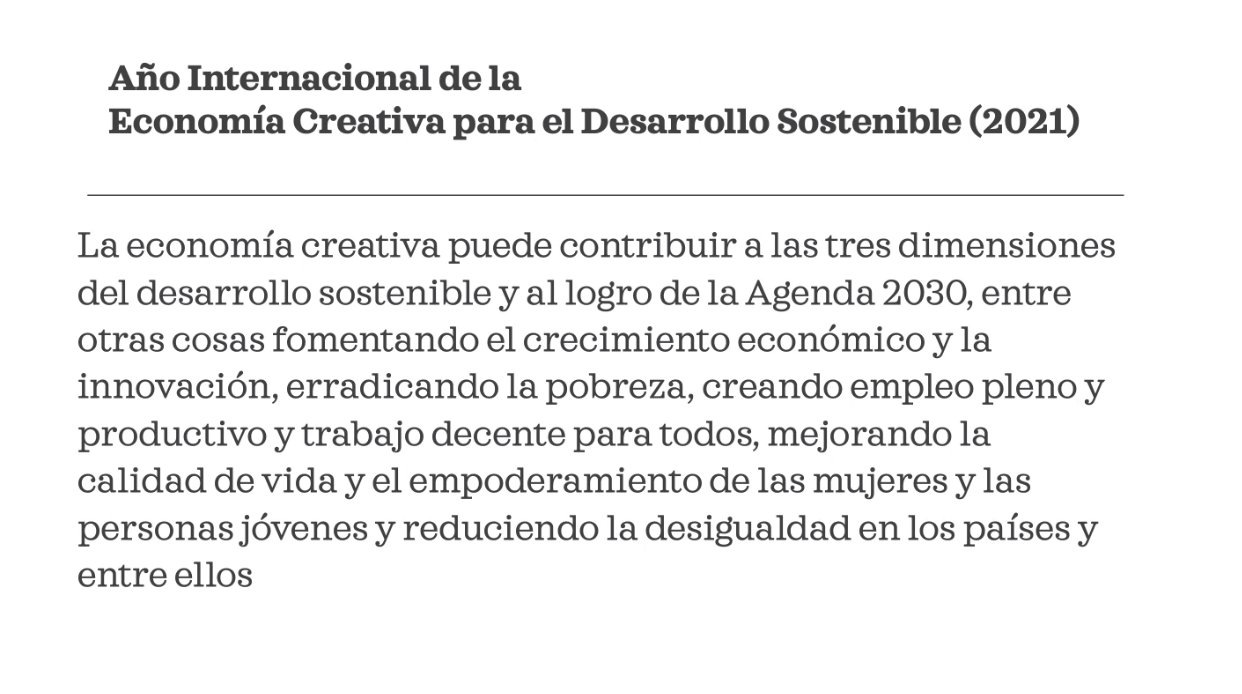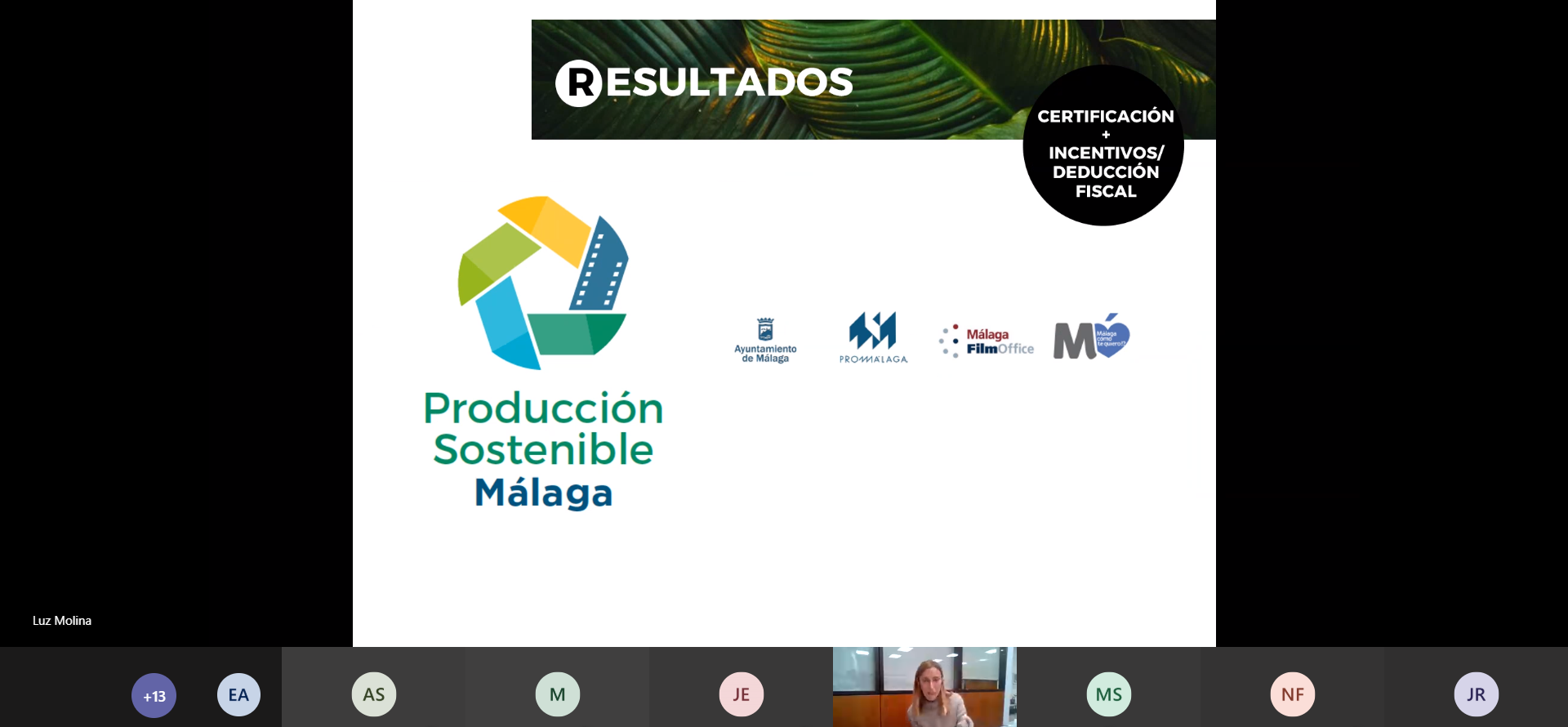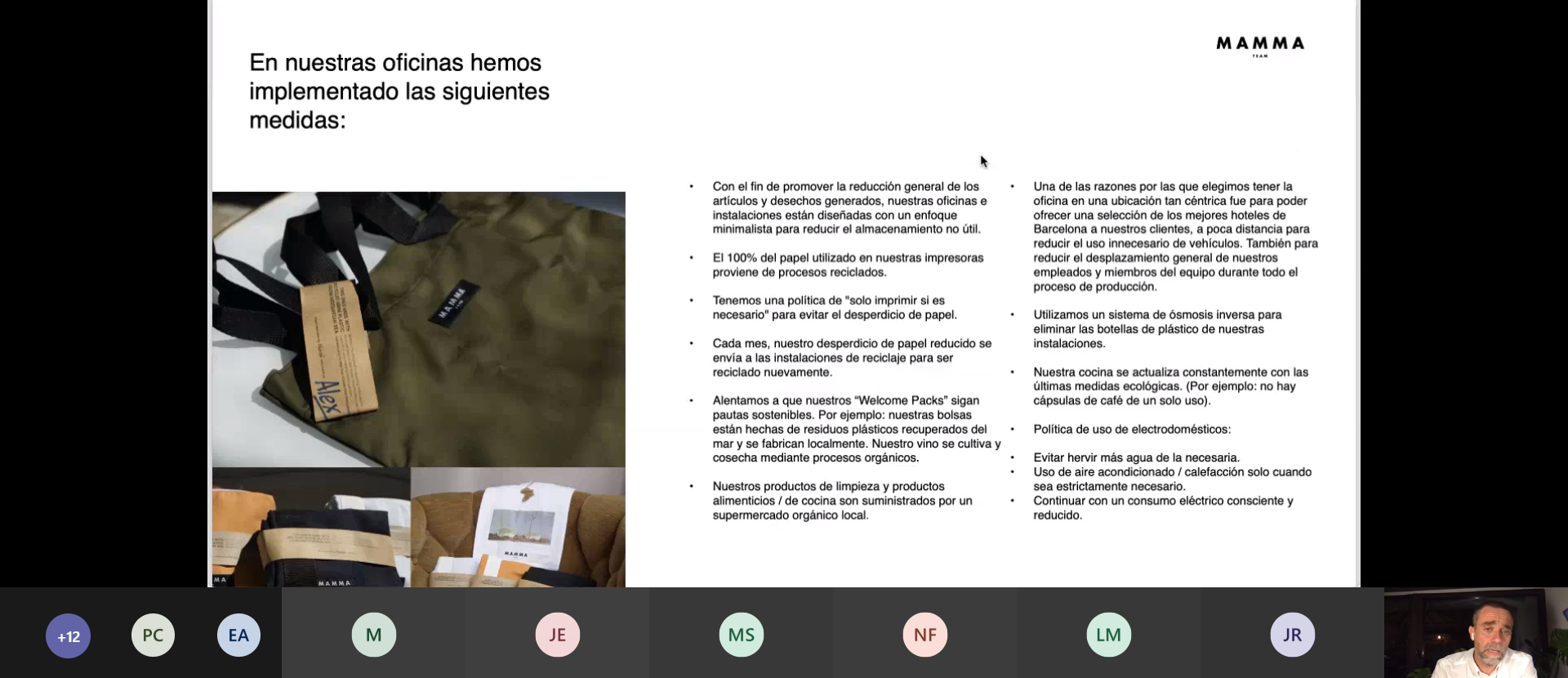
On February 23th, at 19.00h, the videoconference organised by DENAE entitled: “Can the creative industries be sustainable? Real proposals for advertising, fashion and audiovisual production”.
The event was presented in an online round table format, moderated by Juan Merín, CEO of the consulting firm Sector 3 (Grupo Gesor), specialised in sustainability strategies.
Our president Albert Soler, also founder and MD of Mamma Team Productions, shared place with:
Neliana Fuenmayor, founder and CEO of A Transparent Company and Luz Molina, legal advisor and head of the legal department of the Malaga Municipal Business Initiatives Company (PROMÁLAGA). Responsible for the European project “Green Screen”.
Juan Merín began the event by placing us in the current context of the International Year of the Creative Economy for Sustainable Development. He spoke about the value that sustainability is taking in the creative industries, which are also influenced by this factor to create content and develop their products.


All speakers affirmed that we are facing a paradigm shift that is here to stay. Increasingly, as consumers, workers and citizens, we are more and more aware of the importance of sustainability; which implies a balance. It does not work to meet one of the Sustainable Development Goals and fail to meet the others. Sustainability means having a global consciousness!
Neliana Fuenmayor explained all around the fashion industry in the different countries in which she has worked and continues to work. She explained the purpose of A Transparent Company and how they work within the textile sector. Their commitment to accelerating positive impact in the apparel and footwear industries, giving voice to the stories of brands and products, illuminating the supply chain and making the invisible visible. She ensured that this approach to sustainability puts ethical and environmental impact on an equal footing with business success.
Luz Molina followed her by explaining how in 2017 Promálaga imported to Malaga the good practices that were being developed in some European countries to highlight the importance of sustainability in audiovisual filming. She shared ideas and projects developed since then, such as the creation of “10 Commandments for a Sustanaible Production”, the Carbon Footprint Calculator Manual created in October 2019; or its Sustainable Production Seal.
He spoke to us about Eureca, a European plan that seeks to standardise the measurement processes for sustainable filming. They are working to make it available in October/November of this year, with the aim of standardising sustainability metrics in European filming so that the sustainability of filming can be assessed and compared and incentives can be accessed.

Albert Soler started sharing the “Green Book” of the production company Mamma Team and how there are a thousand ways to be sustainable in different daily and working environments. Details such as the fact that in their offices they do not have drawers to avoid non-useful storage. The development of their “Welcome Packs” created with bags made from plastic waste recovered from the sea that are manufactured locally.
Albert also pointed out that working from home seems more common now, but before the pandemic it was not so common in our country. The importance of a healthy work-life balance is also sustainability, which is why their employees have for years been able to work from home whenever necessary. Their offices are located in the city centre to encourage the use of public transport, they have water dispensers for teams to refill their own bottles and the food they offer in their offices is seasonal organic produce. The APCP quality seal certified by AENOR was also discussed. All APCP producers have to undergo an audit that assesses the good practices within the company and certifies whether or not they can belong to the association based on this.

On the final question of whether applying sustainable criteria is more expensive, Albert stated that the increase in costs does not have to reduce your business activity, it also creates and gives access to new clients. The best clients are those who are more aware of sustainability and to access this “new business” is only possible by developing good practices. He pointed out that the great challenge was to integrate this discourse in such a way that these round tables are not necessary in order to highlight the obvious importance and necessity of sustainability and to implement it.
Luz spoke to us about the non-return of the relevance of sustainability in the production model. She affirmed how the new generations have it integrated, “they already bring it from home”, they demand it and they develop it in this way; therefore, the future is increasingly aware of sustainability and that “there is no Planet B”.
Neliana explained the importance of the involvement of public institutions and the law in these terms. She explained how in England what has influenced sustainability in fashion has come from the laws. “In Spain there are not as many sustainability rules that involve the fashion sector as there are in the food or cosmetics industry. The law has a lot to do with the level at which sustainability is applied to fashion”. She shared the idea of generating a change of mentality from “consumer” to “citizen”.
The three concluded the round table discussion with the idea that we must continue to work together, from individual actions as citizens, public institutions, education and business, to make sustainability a normalised and integrated practice in all areas of our lives.



